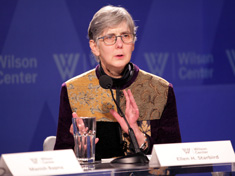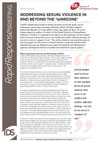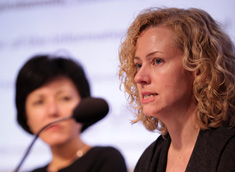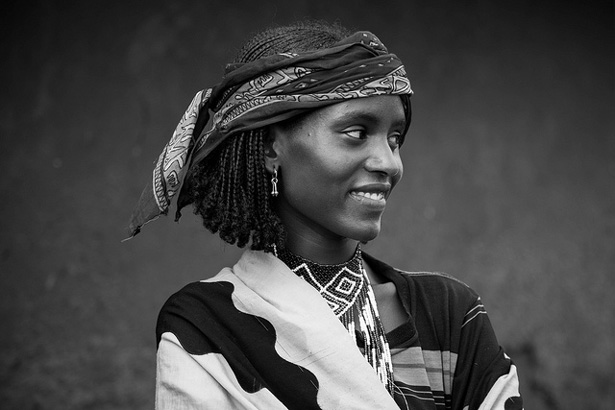-
Ellen Starbird: Sexual and Reproductive Health and Rights Undergird Success of SDGs
›
“Advancing reproductive health and family planning can positively influence and advance a number of sustainable development priorities,” says Director of USAID’s Office of Population and Reproductive Health Ellen Starbird in this week’s podcast.
-
What’s Youth Got to Do With It? Investing in Youth Sexual and Reproductive Health a Development Bargain
›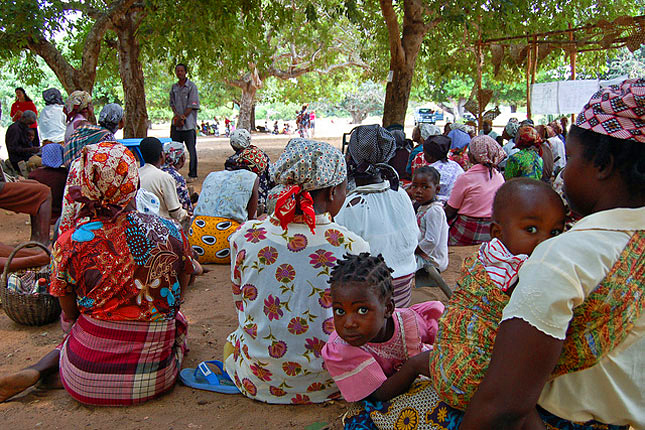
“Half of the world’s population is under 30 – any development agenda would have to address their needs, including their health needs, as part of accomplishing development goals,” said Jennifer Adams, deputy assistant administrator at USAID’s Bureau for Global Health, at the Wilson Center on September 24. [Video Below]
-
Sexual Violence Beyond the Warzone, and the Relationship Between Child Marriage and Fragile States
› -
“Essential to Prosperity and Opportunity”: Heather Boonstra on Adolescent Sexual and Reproductive Health
›
“If girls and young women are often thought of as the forgotten drivers of development, their sexual and reproductive health is almost entirely absent,” says the Guttmacher Institute’s Heather Boonstra in this week’s podcast.
-
Tailored to Fit: Programming for the Sexual and Reproductive Health of Young Women in Africa
›
The first time Almaz, a teenager living in rural southern Ethiopia, went to the crowded health care clinic in her village to get contraception, she was told they only helped older women with children. The second time, she waited hours only to find out that her preferred method of contraception was out of stock and she would have to return another day. [Video Below]
-
Adenike Esiet: Building Support for Improving Adolescent Sexual and Reproductive Health in Nigeria
›“In Nigeria, young people under the age of 25 are driving the HIV epidemic…and that’s been the opening place for people to begin to say, ‘let’s address the issues of young people’s sexual and reproductive health,’” said Adenike Esiet, executive director of Action Health Incorporated in Lagos, during an interview with ECSP.
On any number of health indicators, girls suffer disproportionately. “For every one boy in the age bracket of 10 to 24 who is HIV positive, there are three girls who are HIV positive,” Esiet said. “Over 60 percent of cases of complications from unsafe abortion reported in Nigerian hospitals are amongst adolescent girls. In fact in literature, 10-15 years ago, this was described as ‘a schoolgirl’s problem’…and it’s still an ongoing problem.” She added: “And for girls too, the issue of sexual violence is huge. It goes largely unreported but it’s occurring at epidemic levels.”
Esiet spoke on an adolescent health panel during the April 25 “Nigeria Beyond the Headlines” event at the Wilson Center. Progress is slow on these issues, in large part because “there’s a whole lot of silence about acknowledging young people’s sexuality,” she said.
Adults “want to believe [adolescents] shouldn’t be sexually active.” But turning a blind eye to adolescent sexuality can mean that efforts “to provide access to education or services is hugely resisted by practitioners who should be doing this.”
Action Health works to fill the gap that emerges. “Our work covers advocacy, community outreach, and service provision for young people,” said Esiet.
“Our primary entry road in to work with young people is creating access to sexuality education and youth friendly services. And in the course of trying to do that, we have to do a whole lot of advocacy with government and also with ministries or education and ministries of health and youth development.”
The group has worked with government officials and agencies to establish a nationwide HIV education curriculum and paired with local healthcare providers to increase access to “youth-friendly” sexual and reproductive health services. Funding shortages and insufficient resources have hampered the curriculum’s success, though, and the pervasive attitude against youth sexuality has limited the reach of services, she said. Ultimately, “there are a whole range of issues that truly need to be addressed” for outreach efforts to be successful.
Showing posts from category sexual and reproductive health.


